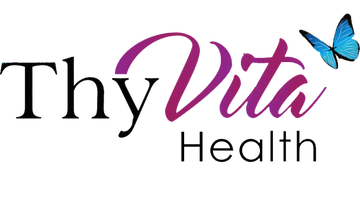A low carb diet is one that limits carbohydrates, primarily found in sugary foods, pasta, and bread. Instead of eating carbs, you focus on protein-rich whole foods and vegetables.
Studies show that low carb diets can result in weight loss and improved health markers.
These diets have been in common use for decades and are recommended by many doctors. Best yet, there’s usually no need to count calories or use special products. All you need to do is eat whole foods that make for a complete, nutritious, and filling diet.
WHAT IS LOW CARB
A low carb diet means that you eat fewer carbohydrates and a higher proportion of protein and fat. This can also be called a keto diet, however, not all low carb diets result in ketosis.
You've probably heard the old adage that fat is detrimental to our health. Meanwhile, low-fat “diet” products, often full of sugar or sugar substitutes flooded supermarket shelves. This coincided with the beginning of the obesity epidemic and, in hindsight, was likely a major mistake. While the increase of low-fat products doesn’t prove causation, it’s clear the low-fat messaging didn’t prevent the increase of obesity in America, we believe that it has contributed. One other reason for the increase in obesity is thyroid disease or thyroidectomy.
Research shows most thyroid patients suffer from low stomach acid which can prevent the breakdown and absorption of proteins and nutrients, and potentially leading to nutrient deficiency and weight gain. Many doctors recommend a low carb diet for thyroid patients but many others don't because it's not protocol, leaving thyroid patients to fend for themselves. So what can you do? You avoided fats, sugars and you eat healthy but you're still gaining weight.
The good news is that studies now suggest that there’s little reason to fear natural fats.
Instead, on a low carb diet you don’t have to fear fat. Simply minimize your intake of sugar and starches, make sure you are getting adequate protein — or even high amounts of protein — and you can eat enough natural fat to enjoy your meals.
When you avoid sugar and starches, your blood sugar tends to stabilize, and the levels of the fat-storing hormone insulin drop, which may make it easier to burn fat stores in the body.
In addition, the higher protein intake and presence of ketones (if eating very low carb) may make you feel more satiated, thereby naturally reducing food intake and promoting weight loss
HOW TO GET STARTED
Let's start with the basics - foods you can eat and what to avoid.
- Eat: Meat, fish, eggs, vegetables growing above ground and natural fats (like butter).
- Avoid: Sugar and starchy foods (like bread, pasta, rice, beans and potatoes).
Eat when you’re hungry and stop when you’re satisfied. It can be that simple. You do not need to count calories or weigh your food.
Who should NOT do a strict low carb diet?
Most people can safely start a low carb diet.
But in these three situations you may need some preparation or adaptation:
- Are you taking medication for diabetes, e.g. insulin?
- Are you taking medication for high blood pressure?
- Are you currently breastfeeding?
If you’re not in any of these groups and don’t have other severe chronic medical conditions — such as advanced liver or kidney failure — you’re good to go.
Disclaimer
To achieve our mission of making low carb simple, we provide visitors with the knowledge, tools, and inspiration we believe they will benefit from to the best of our ability. Although we do our best to provide reliable and informative material, we cannot and do not make any representations or warranty with respect to the content on our site and apps. Use of our site, apps, and other services is done at your own risk.
The information we provide at Thyroid365 is not intended to replace consultation with a qualified medical professional. Seek the advice of your physician or another qualified healthcare provider with any questions you may have regarding a medical condition or before starting a low carb diet or any other lifestyle nutrition program or supplement.
The content we provide is not intended to be relied upon for medical diagnosis or treatment. Inform your physician of any changes you may make to your lifestyle and discuss these with him or her. Do not disregard medical advice or delay visiting a medical professional because of something you read on our site, app, or on our other communication channels.
For questions or concerns about any medical conditions you may have, please contact your doctor.
Visit Thyroid365.com for more information, recipes and meal plan ideas.

